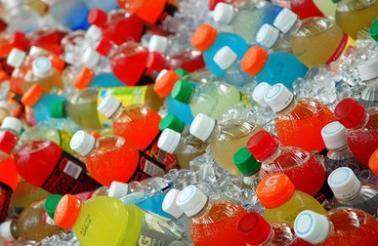
By Annie Urban
Brominated vegetable oil (BVO) is a chemical found in 10 percent of sodas in North America. BVO is patented as a flame retardant for plastics and is banned from use in food in Europe and Japan. In an expose published today by Brett Israel, Environmental Health News is heightening awareness about the risks of human in gestion of this chemical.
Which Products Contain BVO?
If Coca-Cola or Pepsi is your drink of choice, you don’t need to worry (at least not about flame retardant). However, many popular fruity sodas and sports drinks contain BVO. According to Environmental Health News the drinks that list BVO as an ingredient include:
Mountain Dew
Squirt
Fanta Orange
Sunkist Pineapple
Gatorade Thirst Quencher Orange
Powerade Strawberry Lemonade
Fresca Original Citrus This is just a small sampling, however. Check the label of your favorite drinks to see if it contains ‘brominated vegetable oil’ (usually near the end of the list of ingredients).
What is the Risk?
According to Environmental Health News, the risk could be greater than we think, given the addiction that our culture has to sodas.
After a few extreme soda binges – not too far from what many gamers regularly consume – a few patients have needed medical attention for skin lesions, memory loss and nerve disorders, all symptoms of overexposure to bromine. Other studies suggest that BVO could be building up in human tissues, just like other brominated compounds such as flame retardants. In mouse studies, big doses caused reproductive and behavioral problems.
Eighty-five percent of children in the United States drink beverages containing sugar or artificial sweeteners at least once per week. Sugary drinks are the largest source of calories for teenagers and fourth largest source of calories for adults. If BVO can build up over time and cause long-term health issues, the negative health impacts for regular soda drinks could stretch far beyond the calories.
Soda companies, on the other hand, downplay the risk, citing approvals made by the FDA in the 1970s with scant data and reiterating the fact that they comply with all government standards.
Natural Alternatives
As with GMOS, high fructose corn syrup and artificial food dyes, companies in North America are sticking their heads in the sand and insisting that there are no appropriate alternatives when the same companies are making the same products with different ingredients in Europe. European sodas tend to use natural hydrocolloids instead of BVO.
Should We Demand Better?
At Greenbiz.com, Matthew Wheeland ponders where it might lead: While this issue is just now breaking the surface, it will be interesting to see if there’s a similar outcry around BFRs in drinks like to the outcry around them in other products, and if it will reach the scale of concern that has pushed BPA to the forefront in the toxic chemicals debate.
As with so many other unhealthy ingredients, is it time for North American citizens and consumers to demand better from their regulators and from companies.
Courtesy of www.care2.com

